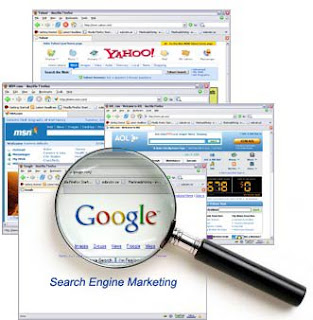SEO, SEM, Organic, Paid, Optimized, SERP, WTF?
- Andrew Kinnear

- Mar 6, 2008
- 3 min read
Many marketers believe that Search Engine Optimization means (in an all encompassing way) "everything that we pay our agency for to make people go to our website". This is only partly true. Ranking high in Search Engine Results Pages (SERP) can come in multiple ways. SEO, referring to the strategic placement of keywords, phrases, and links in a webpage to 'optimize' how a search engine algorithm decides where to rank the page in the SERP, can be done relatively inexpensively. If you're paying a digital agency to design a site for you, this should be a natural component of the design, architecture and content development process. If, on the other hand, they are charging scads of money on top of the design for this 'separate service', you may be getting hosed. Organic Search typically refers to process of people 'naturally' finding your site because of the content of the site, and the fact that you may have PR or other advertising efforts reinforcing your brand out in the real world. (This is also the net effect of SEO) People hear about you, and type your product or brand name into a search engine, and up you pop. Google is smart. They know that the thing you make is on your page. What they don't necessarily know is that the page that has all your negative reviews, and comments about the lousy service your customers may have received, and that may actually get more hits that your page, isn't the real deal. It may float to the top of the SERP simply because of links, popularity and content. One thing I've seen lately is the rise of content specific blogs, with tons of original content, all designed to catch the algorithms and get the word out. This doesn't work for everything. So what about Paid Search? These are those results that appear at the side and top of the typical SERP, and are keyword-specific, and almost always bought. When you type in Toronto and Plumbing, in all likelihood, you will see the most popular plumber at the top of the SERP, but you will see the most heavily promoted plumbers with the biggest paid-search budgets in the sponsored results. These days paid-search doesn't necessarily guarantee results. Several studies have shown that people will often try the #2 or #3 result in the sponsored results, thinking that the #1 must be just too big. The psychology of paid-search is a topic all its own, but the important thing to remember is that the internet is a very big place. If you want to sell TVs online, buying a keyword like 'Electronics' or 'TV' is going to cost big bucks. One thing that I'm sure isn't confused with this other stuff is actual ads. Google adwords (the text ads that are contextual, or based on the context of the page) as well as a myriad of sizes of banners in both static (like a gif or jpg image) or interactive (like a flash, video, or click-to-close pop-up). This is web marketing, but has very little to do with 'Search Engine Marketing'. So marketers, in your next meeting about web marketing, when it comes time to start deciding where to spend your money, maybe you'll have a better idea of what all these fancy terms mean that your agency keeps tossing around. Next time-- Analytics: A fancy word that means "Who's looking at what for how long"




Comments